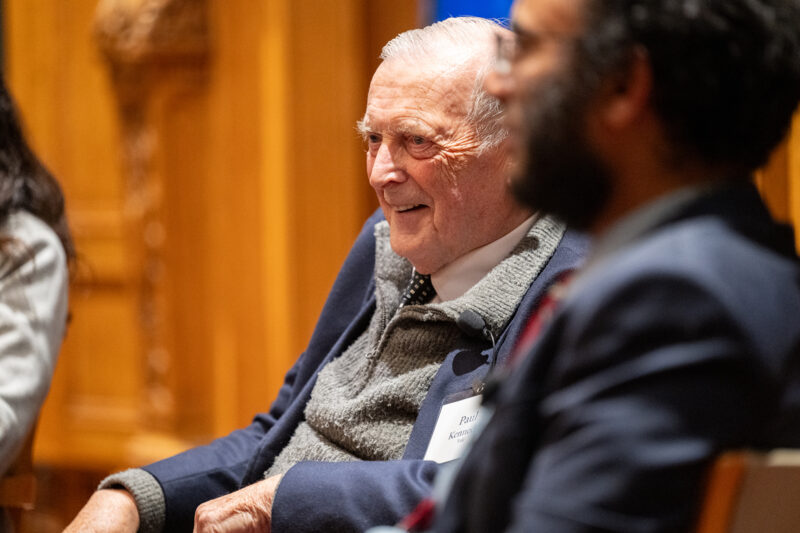On November 10 and 11, the Jackson School of Global Affairs hosted a conference in honor of Paul Kennedy, J. Richardson Dilworth Professor of History and Global Affairs, to celebrate his 40 years of teaching at Yale and the indelible mark he has made on the field of international history.
Dozens of former graduate students, post-doctoral fellows, and colleagues came to Horchow Hall to thank Kennedy for his decades of devoted mentorship of junior scholars and his formidable intellectual contributions and legacies. The event celebrated Kennedy’s unique ability to build an exceptionally rich, generous intellectual community and generations of devoted friends.
During the conference, “Rethinking Great Power Politics,” former mentees — many of whom are now eminent historians themselves — presented papers that reflect on Kennedy’s work and demonstrate the ways in which his ideas have assumed new afterlives, continuing to shape the dialogue around international, diplomatic, and military histories.
Kennedy, the founding director of International Security Studies and co-founder of the Brady-Johnson Program in Grand Strategy, arrived at Yale in 1983. Four year later, he published his seminal work, “The Rise and Fall of the Great Powers,” widely considered one of the most important history books of the 20th century. It rose to sixth on the list of best-selling hardcover books of 1988 and earned Kennedy the Wolfson History Prize, sparking years of debate and discussion, and continuing to inform scholarship on the sources and durability of state power. It has been translated into more than 20 languages.
In a recent article published in The New Statesman, “The Rise and Fall of the Great Powers redux,” Kennedy contemplated the enduring relevance of his book’s original ideas 35 years later, and applied his analysis to the hard realities of global politics in the 21st century.
Over the course of his academic career, Kennedy has written several additional books, including “The Rise and Fall of British Naval Mastery,” “The Rise of the Anglo-German Antagonism,” and “The Parliament of Man.”
